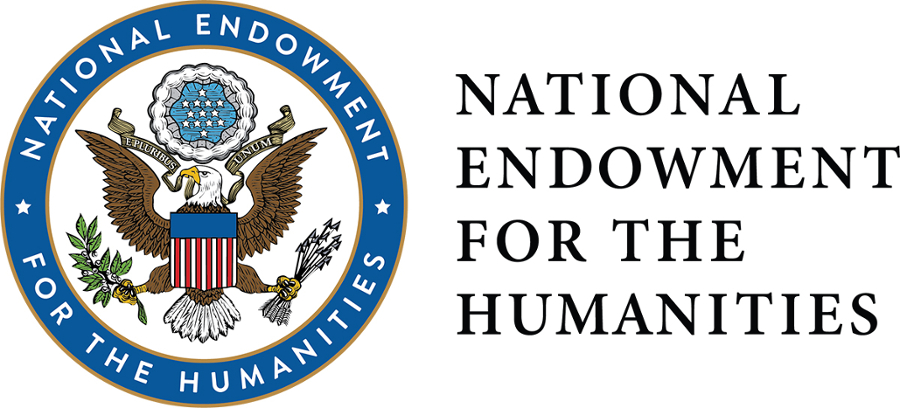About the Institute
This NEH Summer Institute aims to uncover new ways to understand, depict, and reconstruct notions about early Black lives. This aim is necessarily tied to teaching, and entirely entwined with a communal commitment to pedagogy and mentoring. The organizers of this endeavor hail both from Furman University, a prominent liberal arts college with a deep commitment to the intersectional humanities, and also from Clemson University, a Carnegie R1 University with a historical emphasis upon the STEM fields but a growing strength in the humanities. This joint partnership between such different entities in the same region allows us to bring a variety of archival and pedagogical tools to the tasks at hand. Most of all, this partnership will allow us to present and exchange resources and strategies with a new generation of teachers and scholars. Reconstructing the Black Archive: South Carolina as Case Study, 1739-1895, based primarily at our two institutions both located in the vibrant Upstate of South Carolina, brings together scholars and artists to create an intense community of inquiry allowing us to collaboratively learn analytical strategies from interdisciplinary fields of the visual arts, the aural arts, community-focused research, museum studies, literary criticism, historical studies, and a swath of other creative fields.
Application submission period is closed.
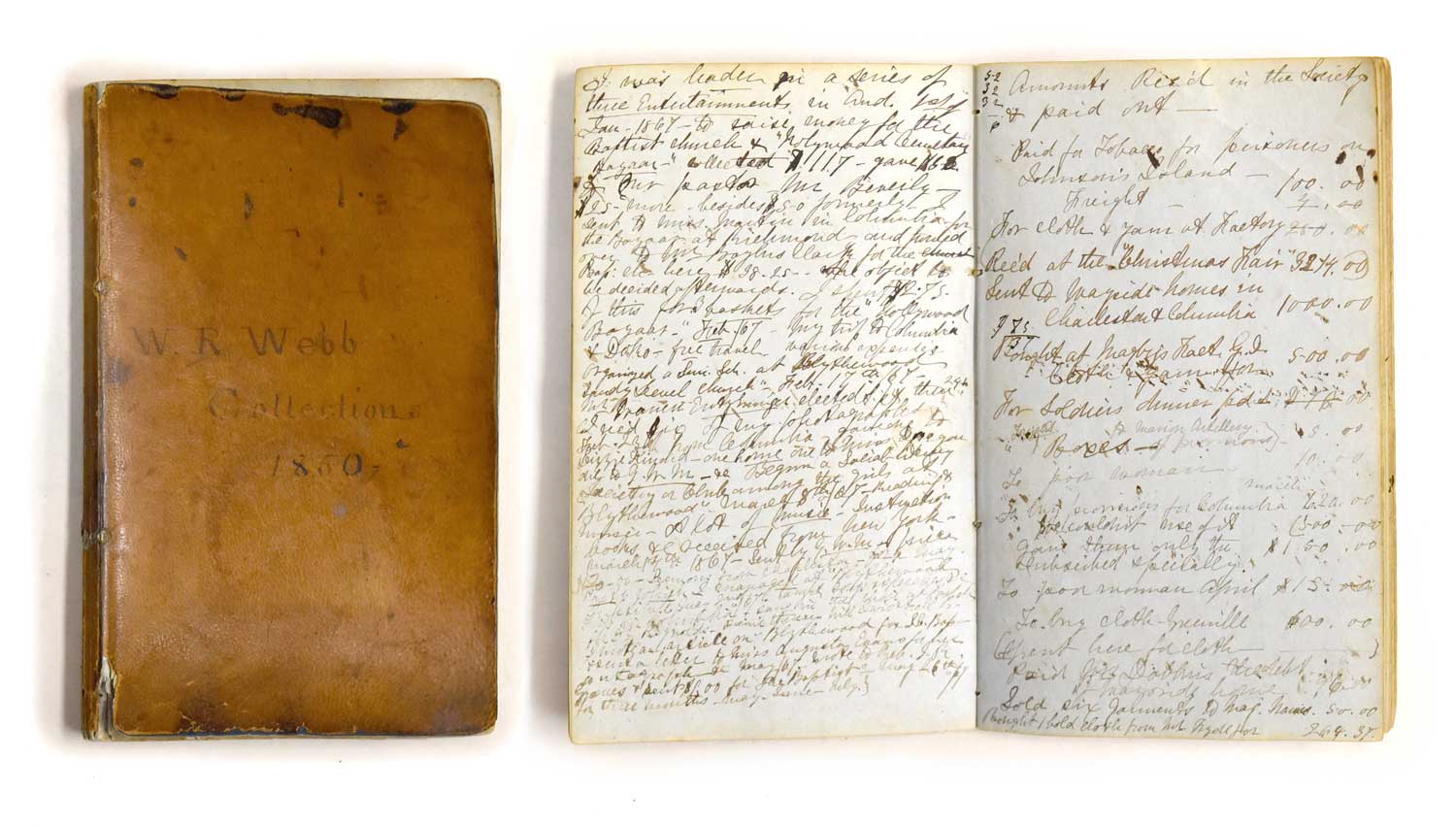
Taking South Carolina as a case study, this Institute will provide practical advice and tools for writers and researchers who examine Black histories, biographies, and life writing (narratives, gallows literature, fictionalized histories, and other such genres prevalent in the Black Archive), even if their particular subjects are not centered in South Carolina. Because of the unique positioning of South Carolina as the first Southern slave state to secede from the Union, we are in a position to look at how the archival memory needs active reconstruction.
Project Team
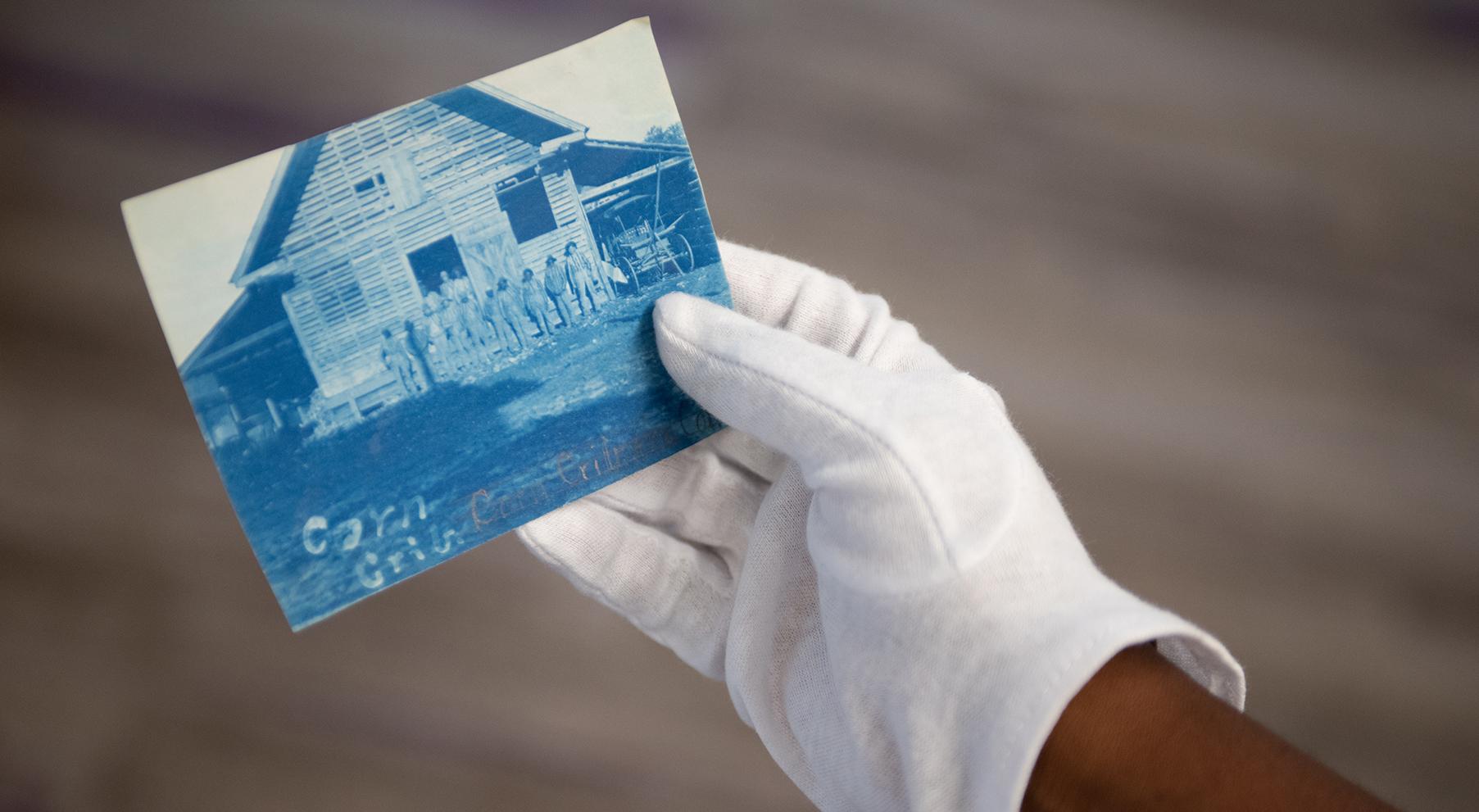
- Co-Director Susanna Ashton, Ph.D.
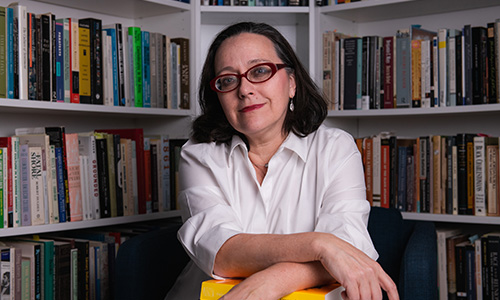
Susanna Ashton is a Professor of English at Clemson University. She is a scholar of literature and testament and works as an expert on contested authorship of slave or freedom narratives. From 2021-2022 she was a W.E.B. DuBois Fellow at the Hutchins Center for African and African American Research at Harvard University, has held a Fulbright to Ireland and a research fellowship with Yale University’s Gilder Lehrman Center for the Study of Slavery, Abolition, and Resistance, among other awards. She is the author of Collaborators in Literary America, 1820-1920, and co-editor of various collections, including “I was Born in South Carolina,” South Carolina Slave Narratives; (with Rhondda R. Thomas) The South Carolina Roots of African American Thought; (with Tom Lutz) These ‘Colored’ United States; (with William Hardwig) Approaches to Teaching Charles W. Chesnutt; Samuel Williams’ autobiography “Before the War and After the Union;” as well as chapters and articles in journals such as MELUS, Studies in the Novel, Commonplace, Frontiers, Biography, the American Literary Review, the Southern Literary Journal, History Ireland, American Periodicals, Libraries and Culture, JSTOR Daily, and Symplokē. She is completing a biography: John Andrew Jackson: the Hidden Inspiration for Uncle Tom’s Cabin for The New Press, forthcoming 2024.
- Co-Director Gregg Hecimovich, Ph.D.
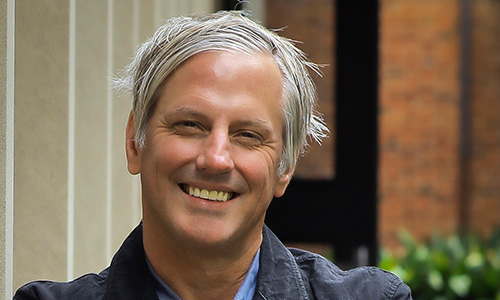
Gregg Hecimovich is professor of English at Furman University in Greenville, South Carolina. Hecimovich is the author of four books including the forthcoming The Life and Times of Hannah Crafts (Ecco/HarperCollins, 2023). He has received fellowships from the Hutchins Center for African & African American Research at Harvard University and the National Humanities Center in Research Triangle Park, North Carolina. Additionally, Hecimovich held a Public Scholar Fellowship appointment from the National Endowment for the Humanities.
He earned his BA at the University of North Carolina at Chapel Hill, where he won the Louis D. Rubin Jr. Prize for most outstanding creative writer in his graduating class and graduated Phi Beta Kappa and cum laude in both English literature and creative writing. He earned his MA and PhD at Vanderbilt University where he was awarded the Graduate Student of the Year Award. He is the recipient of numerous teaching awards including the University of North Carolina Board of Governors Distinguished Professor for Teaching Award and the Max Ray Joyner Award for innovative teaching with technology.
- Co-Director Kaniqua Robinson, Ph.D.
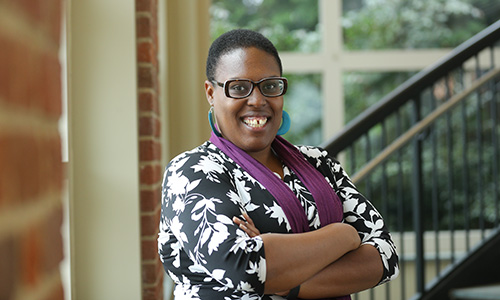
Kaniqua Robinson is a professor of anthropology at Furman University, Greenville, South Carolina. She earned her PhD in Applied Anthropology from the University of South Florida. Robinson is a research consultant and memorialization specialist for the Black Cemetery Network. Her research focuses on race and the politics of memory. Her current research centers on the public memorization and the silencing of the Black experience at the Arthur G. Dozier School for Boys, a reform school in Florida. Robinson employs ethnographic methods in her work on the politics of memory and how Black communities experience and actively resist racial inequalities.
- Co-Director Rhondda Robinson Thomas, Ph.D.
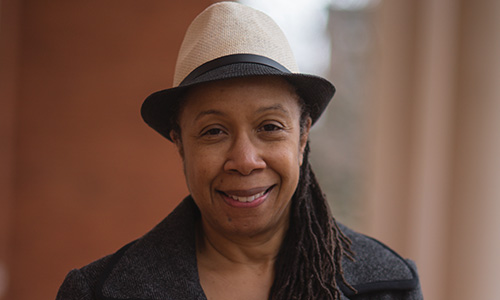
Rhondda Robinson Thomas is the Calhoun Lemon Professor of Literature at Clemson University in Clemson, South Carolina, where she teaches and researches early African American literature in the Department of English. She earned her PhD in English at the University of Maryland-College Park. Thomas has published Call My Name, Clemson: Documenting the Black Experience in an American University Community and recently signed a contract with University of Georgia Press to publish The Voices of Black Clemson: Silenced No More. She has also edited volume 1 of African American Literature in Transition, 1750-1800 by Cambridge University Press. She is currently serving as the Research and Community Engagement Coordinator for Clemson’s Woodland Cemetery and African American Burial Ground Historic Preservation project. Dr. Thomas is also the faculty director of the Call My Name research project for which she was selected as a Whiting Foundation Public Engagement Fellow and has received grants from the National Endowment for the Humanities and South Carolina Humanities. She is co-PI on a grant from the National Science Foundation for My STEM, My Story, a community-based project that will enable children in communities near Clemson University to publish a graphic novel about environmental justice. She was Clemson University’s 2021 Senior Researcher of the Year and received a Fresh Voices in the Humanities award from South Carolina Humanities in October 2022.
- Program Manager Donna Rucker
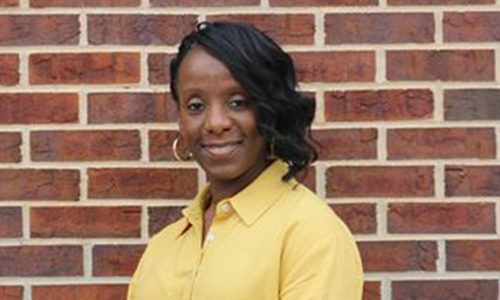
Donna is a native of Anderson, SC where she attended Belton-Honea Path High School and earned her Bachelor’s of Science degree in Business Administration from Lander University. She has two daughters and in her spare time she enjoys reading and photography. She currently serves as Support Staff for Anderson School District Five.
Participant Expectations
Stipend, Tenure, and Conditions of Award
Each participant will receive a stipend of $2,850 for the three-week institute. The stipend is intended to help cover institute-related expenses including housing, food, transportation to and from the institute site, books assigned but not provided by the institute team, and other basic expenses. Stipends are taxable.
Project applicants who accept an offer to participate are expected to remain during the entire period of the program and to participate in its work on a full-time basis. If a participant is obliged through special circumstances to depart before the end of the program, it shall be the recipient institution’s responsibility to see that only a pro rata share of the stipend is received or that the appropriate pro rata share of the stipend is returned if the participant has already received the full stipend.
At the end of the project's residential period, NEH Summer Scholars are expected to submit online evaluations of the seminar or institute.
Deadlines:
- Participants are required to submit a project evaluation.
- Participant applications are due on March 3, 2023.
- All applicants will be notified of their status (whether accepted, waitlisted, or not accepted) by April 3, 2023.
- Selected participants must accept or decline by April 14, 2023.
Once an applicant has accepted an offer to attend any NEH Summer Program (Seminar, Institute, or Landmark), he/she/they may not accept an additional offer or withdraw in order to accept a different offer.
Participants will be selected by a committee consisting of five members, including the project directors.
Submit Application Schedule Locations Institute Reading List Resources NEH InformationParticipant Eligibility
Institutes are designed for a national audience of full-or part-time faculty who teach undergraduate students. Project directors may admit a limited number of others whose work lies outside undergraduate teaching but who demonstrate that their participation will advance project goals and enhance their own professional work.
At least five institute spaces will be reserved for non-tenured/non-tenure-track faculty members. Three institute spaces may be reserved for advanced graduate students.
Participants must be United States citizens, residents of U.S. jurisdictions, or foreign nationals who have been residing in the United States or its territories for at least the three years immediately preceding the application deadline. U.S. citizens teaching abroad at U.S. chartered institutions are also eligible to participate. Foreign nationals teaching abroad are not eligible to participate.
A participant need not have an advanced degree in order to take part in an institute. Individuals may not apply to participate in an institute whose director is a family member, who is affiliated with the same institution, who has served as an academic advisor to the applicant, or who has led a previous NEH-funded seminar, institute or Landmarks workshop attended by the applicant.
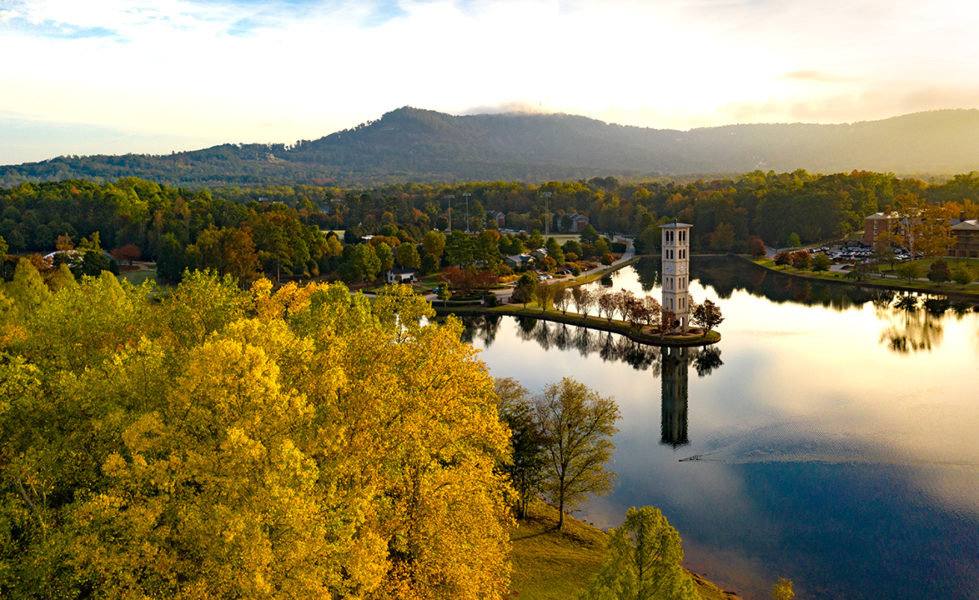
Photo of Furman University in Greenville, S.C.
Participants may not be delinquent in the repayment of federal debt (e.g. taxes, student loans, child support payments, and delinquent payroll taxes for household or other employees).
Individuals may not apply to participate in an institute if they have been debarred or suspended by any federal department or agency.
Guest Lecturers and Speakers
- Edda Fields-Black
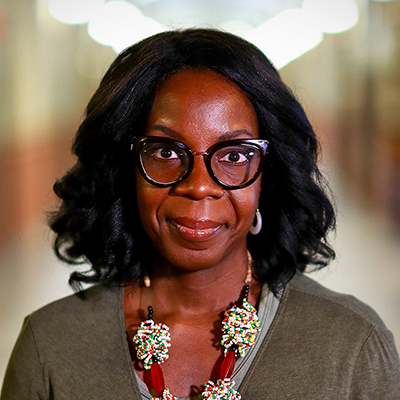
Dr. Edda Fields-Black is Associate Professor of History at Carnegie Mellon University. She is a specialist in the trans-national of West African rice farmers, peasant farmers in pre-colonial Upper Guinea Coast and enslaved laborers on rice plantations in the South Carolina and Georgia Lowcountry during the antebellum period. Fields-Black will lead an onsite tour exploring Harriet Tubman’s Combahee River Raid based on her new book from Oxford University Press on the subject.
- Nikky Finney
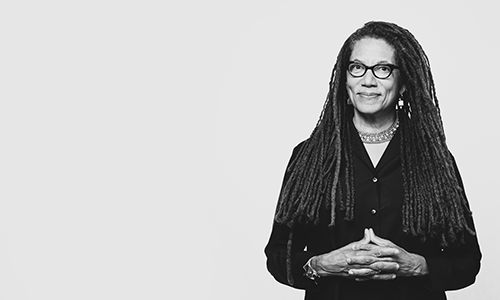
Nikky Finney was born by the sea in South Carolina and raised during the Civil Rights, Black Power, and Black Arts Movements. She is the author of On Wings Made of Gauze; Rice; The World Is Round; and Head Off & Split, which won the National Book Award for Poetry in 2011. Her new collection of poems, Love Child’s Hotbed of Occasional Poetry, was released in 2020 from TriQuarterly Books/Northwestern University Press.
- Brandon Inabinet
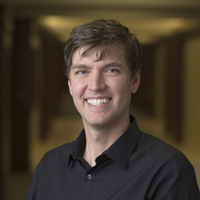
Professor Inabinet has published on ancient ethics and rhetorical theory in modern contexts. He is specifically interested in the current moment in regional rhetoric, and the way that the U.S. South's project of racial reckoning reflects and leverages global social movement. Inabinet served as chair of the Furman Universtiy Task Force on Slavery & Justice.
- Mary Caton Lingold
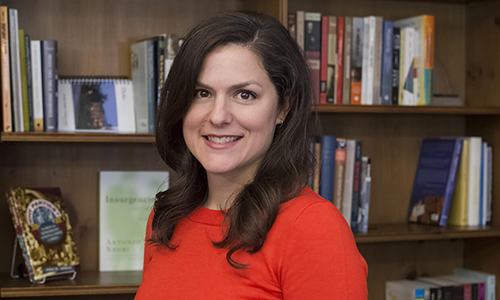
Dr. Mary Caton Lingold is Assistant Professor of English at Virginia Commonwealth University. She is an interdisciplinary scholar specializing in the literature, culture, and music of the early modern African Atlantic world, sound studies, and digital humanities. Her book, Sound Legacy: Music and Slavery in an African Atlantic World, is forthcoming with UVA Press (Fall 2023).
- Barbara McCaskill
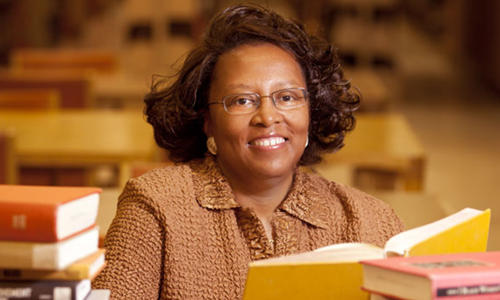
Barbara McCaskill is a professor at the University of Georgia in the Department of English. She is also Co-P.I. of Culture and Community at the Penn Center and Civil Rights Digital Library and Associate Academic Director of Willson Center for Humanities & Arts at UGA. Her areas of research interest are nineteenth- and early twentieth-century African American literature, African American print culture, the literature and film of the Civil Rights Movement, multiplatform storytelling and digital humanities archives, project- and place-based learning, and contemporary Black Feminist/Womanist literature. In support of this research, she has been the recipient of summer seminar grants from the National Endowment for the Humanities and Ford Foundation, and of prestigious fellowships from centers such as the Radcliffe Institute for Advanced Study and W. E. B. Du Bois Institute at Harvard University, Gilder Lehrman Institute of American History, and the Schomburg Center for Research in Black Culture. McCaskill has published The Magnificent Reverend Peter Thomas Stanford: Transatlantic Reformer and Race Man, co-authored by Sidonia Serafini with Rev. Paul Walker, Love, Liberation, and Escaping Slavery: William and Ellen Craft in Cultural Memory, Post-Bellum, Pre-Harlem: African American Literature and Culture, 1877-1919 a teaching edition of the 1860 memoir Running 1,000 Miles for Freedom: The Escape of William and Ellen Craft from Slavery. She has also published scores of peer-reviewed journal essays and book chapters including in The Cambridge History of African American Autobiography and The Oxford Handbook of the African American Slave Narrative.
- Joycelyn Moody
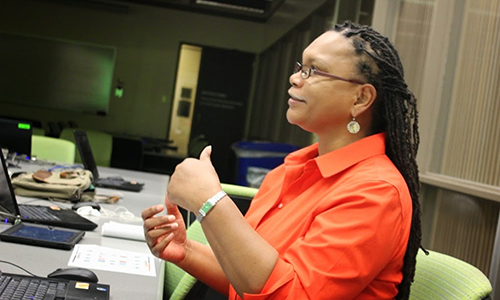
Joycelyn Moody is Sue E. Denman Distinguished Chair in American Literature at the University of Texas at San Antonio, where she teaches courses on African American literature, life writing, and Black feminisms. She served as Editor-in-Chief of African American Review from Fall 2004 through Spring 2008. She has taught at several institutions, including the University of Washington, Saint Louis University, Hamilton College, and the Harvard School of Divinity. Besides articles and chapters, her publications include Sentimental Confessions: Spiritual Narratives of Nineteenth-Century African American Women and Course Guide for The Norton Anthology of African American Literature 2nd ed. She is co-editor of the African American Literature in Transition series and editor of A History of African American Autobiography both published by Cambridge University Press.
- Jessica Millward
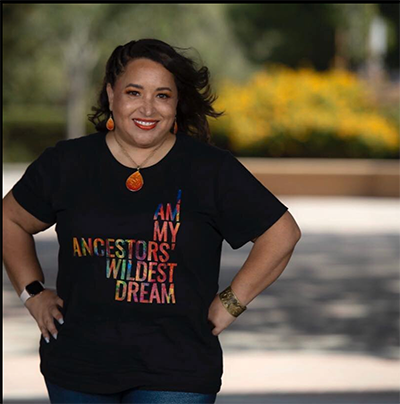
Jessica Millward is a media-savvy historian and podcast host who specializes in bringing a historical perspective to modern times. An out-of-the-box thinker, radical dreamer and intellectual freedom fighter, Millward is particularly interested in the intersections of slavery, freedom, power and liberation.
Professor Millward is the Black Thriving Inclusive Excellence Term Chair at UC Irvine. An Associate Professor in the Department of History and Core Faculty member of African American Studies, Dr. Millward's first book, Finding Charity’s Folk: Enslaved and Free Black Women in Maryland was published as part of the Race in the Atlantic World series, Athens: University of Georgia Press (2015). An award-winning scholar, she has published in the Journal of African American History, the Journal of Women’s History, Frontiers, Souls and the Women’s History Review as well as Op-eds in Chronicle of Higher Education, The Feministwire.com and The Conversation.com. Millward is currently working on a book length project that discusses African American women's experiences with sexual assault and intimate partner violence in the late 19th century. - Holly Pinheiro
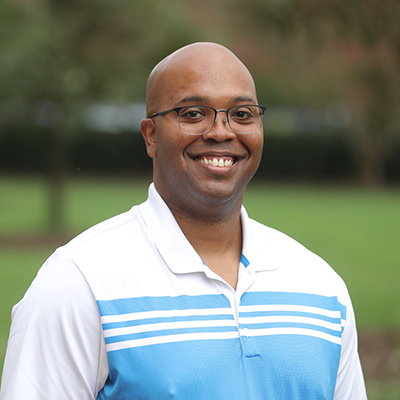
Dr. Holly Pinheiro Jr.’s research focuses on the intersectionality of race, gender, and class in the military from 1850 through the 1930s. Counter to the national narrative which championed the patriotic manhood of soldiering from the Civil War through the 1930s, his research reveals that African American veterans and their families' military experience were much more fraught. Economic and social instability introduced by military service resonated for years and even generations after soldiers left the battlefield. He is the author of The Families’ Civil War: Black Soldiers and The Fight for Racial Justice (U. of Georgia P., 2022).
- Glenis Redmond
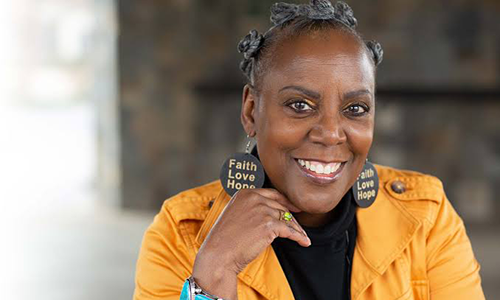
Glenis Redmond is a nationally renowned award-winning poet and teaching artist traveling the world sharing and teaching poetry. She writes about the strength of her Afro-Carolinian roots, while exploring their weighted and palpable histories. Redmond is a literary community leader. She is dedicated to coaching and uplifting youth poet’s voices. She co-founded a literary program called Peace Voices in her hometown of Greenville, SC from 2012-2019. Redmond is also a Kennedy Center Teaching Artist and a Cave Canem poet.
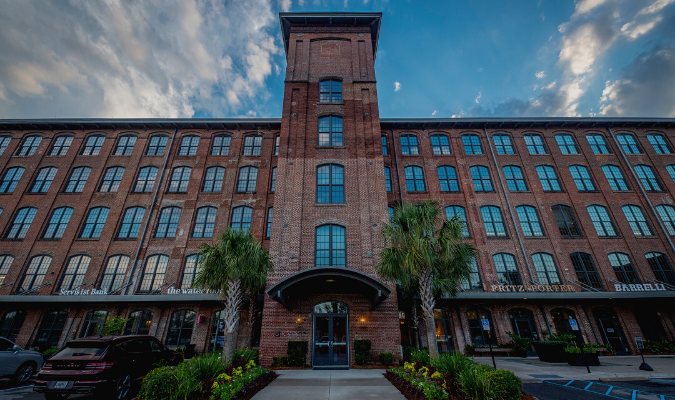
The former Cigar Factory in Charleston, S.C. is home to the Clemson Architecture Center
Weekly Syllabus and Schedules
WEEK 1: IMAGINING ARCHIVES OF BLACK LIFE Clemson University, Clemson, SC
|
Date |
Session |
Location |
|
Sunday, June 18 |
REGISTRATION & CHECK-IN: 2:00pm - 5:45pm South Carolina Picnic Welcome at 6:00 P.M. |
Clemson U. Picnic & Welcome at the Barnes Center |
|
Monday, June 19 |
Morning: Opening Session Lunch: Community Juneteenth Festival (on campus; optional) Afternoon: 5-minute elevator talks from Institute participants |
Clemson U. |
|
Tuesday, June 20 |
Morning: “Call My Name” Tour of Clemson University and Presentation - institutional projects and initiatives |
Clemson U. |
|
Wednesday, June 21 |
Morning: Research/Reading time Afternoon: Black Biography, Life Writing, and Living Memory - Presentation and discussions with Jocelyn, Moody |
Clemson U. |
|
Thursday, June 22 |
Morning: Workshop with Glenis Redmond: Dave the Potter Afternoon: Presentation by Barbara McCaskill |
Clemson U. |
|
Friday, June 23 |
Morning: Special Collections & Archives Presentation / Research time / tools and techniques Afternoon: Bertha Lee Strickland Cultural Museum (Seneca, SC) and African American heritage bus tour of Clemson and Pendleton, SC. |
Clemson U. Special Collections Seneca, Clemson, and Pendleton, South Carolina |
WEEK 2: RECONSTRUCTING ARCHIVES OF BLACK LIFE Travel from Clemson, SC to Columbia, SC, and Charleston, SC
|
Date |
Session |
Location |
|
Monday, June 26 |
Morning: Academic programming - material history as archive Ehren Foley from University of South Carolina Press – discussion about the state of the field and publishing options Afternoon: Participant project work and library consultations. |
Clemson U. |
|
Tuesday, June 27 |
Morning: Participant Presentations & Break-Out Discussion Nate Holly of University of Georgia Press – discussion about the state of the field and publishing options Afternoon: Mary Caton Lingold - “Sound as Archive” (via Zoom) |
Clemson U. |
|
Wednesday, June 28 |
Morning: Travel to SC Department of Archives and History, Columbia, SC Afternoon: Presentations and research at the SC Department of Archives and History Evening: travel to College of Charleston |
Columbia, SC>>Charleston, SC |
|
Thursday, June 29 |
Morning: Walking tour of African American history in Charleston 0r optional Reading/Research time Afternoon: Avery Center for African American Research Tour |
Charleston, SC |
|
Friday, June 30 |
Morning: International African American Museum Afternoon: Charleston Public Library South Carolina Room |
Charleston, SC |
|
Saturday, July 01 |
Morning: Edda Fields Black – Introduction to Harriet Tubman and South Carolina Afternoon: McLeod Plantation labor camp 2:30 tour (optional; tickets are not covered by NEH Institute) Discussion and collective debrief about teaching histories of trauma |
Charleston, SC |
WEEK 3: AMPLIFYING ARCHIVES OF BLACK LIFE Travel from Charleston, SC, to Greenville, SC
|
Date |
Session |
Location |
|
Sunday, July 1 |
Morning: Departure time TBD to travel back to Greenville from Charleston to Aloft Hotel in Greenville |
|
|
Monday, July 03 |
Morning: TBD Afternoon: Furman University Special Collections with Jeffrey Makala Evening: African American Walking tour of downtown Greenville (Optional) |
Charleston, SC >> Greenville, SC & Furman U. campus |
|
Tuesday, July 04 |
Holiday / Hikes to waterfalls excursion (optional) |
|
|
Wednesday, July 05 |
Morning: “Seeking Abraham” tour of Greenville, SC and Furman University Afternoon: Research/Reading time Evening: Nikky Finney and others poetry reading/community engagement |
Furman U. campus & Greenville , SC |
|
Thursday, July 06 |
Morning: Academic Programming Afternoon: Research time/preparation for Institute participant presentations Evening: Upcountry History Museum, Furman University Special Programming [The Peabody Daguerreotypes] |
Furman 101 (One City Plaza) |
|
Friday, July 07 |
Morning: 10-minutes escalator talks from Institute participants about their projects Afternoon: 10-minutes escalator talks from Institute participants about their projects Evening: Celebration dinner |
Furman 101 (One City Plaza) |
|
Saturday, July 08 |
Morning: Assessment / Reflections / Adjourn |
Furman 101 (One City Plaza) |
Locations and Accommodations
This NEH Institute will take place on three separate sites: Clemson, SC, Charleston, SC and Greenville, SC. The NEH Institute will provide transportation between these three sites; however, participants will cover their accommodation expenses. Housing must be booked directly with housing companies and paid for by participants. The housing recommendations below are all optional, and participants are welcome to make their own arrangements at other facilities as appropriate.
Clemson University – Clemson, SC
- Traveling to Clemson University
Participants can choose to fly or drive to Clemson University.
Clemson is accessible from a major interstate, I-85. Take Exit 19B towards Clemson University. Follow US-76 for approximately 12 miles. Exit off US-76 onto SC-93 S toward Clemson University.
Closest AirportsThe closest airport to Clemson University is the Greenville-Spartanburg International Airport and is about a one-hour drive away from campus. Please be aware that no public transportation runs between any airport and Clemson University. We suggest booking a rental car or using a car service or rideshare service such as Uber.
Greenville-Spartanburg International Airport, Greenville, South Carolina (49 miles from Clemson).
Ground transportation and rental cars available at GSP airport .These airports are located about a 2.5-hours drive away from Clemson University:
Columbia Metropolitan Airport, Columbia, South Carolina (138 miles from Clemson)
Ground transportation and rental cars available at CAE airport .Hartsfield-Jackson Atlanta International Airport, Atlanta, Georgia (130 miles from Clemson)
Ground transportation and rental cars available at ATL airport .Charlotte Douglas International Airport, Charlotte, North Carolina (130 miles from Clemson)
Ground transportation and rental cars available at CLT airport . - Dining and Food Options
We recommend eating at the Clemson University dining services cafeteria known as “The Dish at McAlister Hall” and purchasing meals a la carte.
Daily Walk-in Meal rates
BREAKFAST: $ 9.00 plus tax
LUNCH: 12.00 plus tax
DINNER: 13.00 plus taxCurrent prices listed. Prices are subject to change for summer 2023.
Other convenient and walkable options on campus and in downtown Clemson trend towards casual student food such as pizza, bagels, subs, and fast-food options (Chipolte, Panda Express, Chick-fil-a, Jimmy John Sandwiches, etc). More high-end dining options are available nearby within a short drive.
- Internet access while at Clemson University
While you are at Clemson University (either at the Douthit Hills residence or on campus during the day), you will have access to “eduroam,” presuming you already have “eduroam” WiFi access from your home institution. If for some reason you have difficulties or cannot access “eduroam,” you are welcome to use “Clemson Guest” WIFI access. “Clemson Guest” doesn’t allow access to all Clemson University sites, so if you have difficulties, please ask our NEH Institute team for assistance. You can learn more here.
https://ccit.clemson.edu/support/current-students/get-connected/wireless/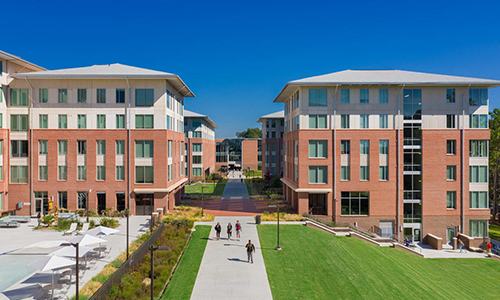
- Recommended Accommodations
Douthit Hills West, Floorplan Douthit C
Clemson University Housing:
This housing option offers a private bedroom in a studio, double, or quad styled apartment of Douthit Hills West - Building C located at 151 Daniel Street, Clemson, SC 29631, Clemson’s newest on-campus apartment complex.
• The studio (single) has one bathroom. Note: there are a very limited number of studios available.
• The double (2 private bedrooms) apartment has one shared bathroom.
• The quad (4 private bedrooms) apartment has two shared bathrooms.
You can only be assigned to one private bedroom in an apartment suite. For example, you cannot pay for a double suite and be the sole occupant of the suite.
$33/night + Accidental Insurance of $.45/per day/per person. Information on payment options will be shared before June 1.
Please bring your own linens (sheets, pillow, blanket, towels/washcloths) and toiletries.

College of Charleston – Downtown Charleston
- Traveling to College of Charleston
We will provide free van transportation from Clemson to Charleston on June 28th (stopping in Columbia along the way) and then back to Greenville on on July 3rd. If you choose to travel in your own vehicle, directions to the College of Charleston’s Berry Hall where we will be staying and leaving from for our local field trips in the Lowcountry of South Carolina, can be found by clicking here (disregard their “move-in” information which is only for their undergraduate students and not summer visitors).
- Dining and Food Options
The College of Charleston dining options are good to consider but the bevy of nearby dining options in that city may make it less appealing and necessary.
College of Charleston Summer Dining
The College of Charleston (CofC) offers the convenient dining recommendations of Liberty Street Fresh Foods, Chick-Fil-A, and the Market 159 during the summer months. All eateries are centrally located to CofC and open to the general public. Traditional meal plans are not provided during the summer.
Liberty Street Fresh Foods College of Charleston
Chick- Fil -A College of Charleston
Market 159 College of Charleston
Restaurants Near the College of Charleston
Charleston is known for its fine cuisine and especially its southern fare and seafood. Many restaurants are on King Street and within walking distance in the neighborhoods immediately surrounding the College of Charleston where we will be staying.
Fancy deli food, coffee, and lovely baked goods can be found at Caviar and Bananas only a few steps away from Berry Hall at the College of Charleston. Or you could check out Hero Doughnuts and Buns . Nearby independent coffee shops include The Rise , Second State Coffee , and Tricera , among many others. For those seeking the more familiar brew of Starbucks , there is one at the corner of Marion Square and Calhoun Street.
For those with cars or wishing to go further afield via car share services, we recommend investigating any of the several fun seafood restaurants near “ Shem Creek ” all of which provide lively seaside atmosphere some 20 minutes out of town.
Here is a link to a good overview of other vetted restaurants in Charleston at a variety of price points and styles:
- Internet access while at College of Charleston
While staying at the residence hall provided by the College of Charleston they assure us that internet access will be provided. In addition to “eduroam” WiFi that should work automatically if you already have access to “eduroam” from your home institution. As the College of Charleston policies read: “Wireless internet access is available for all summer guests. A username and password will be provided with check-in materials. Note: All residence halls have wireless internet service.” See more information here:
https://housing.cofc.edu/apply-for-housing/summer-housing-a-z-policies.php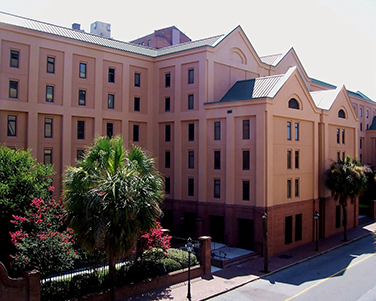
- Recommended Accommodations
George Street Apartments Video
If you opted for residential housing at the College of Charleston, you will be assigned a private bedroom in a suite in the George Street Apartments located at 55 George Street, Charleston, SC 29403.
- The apartment with three private bedrooms has one shared bathroom.
- he apartment with four or five private bedrooms has two shared bathrooms.
You can only be assigned to one private bedroom in an apartment. For example, you cannot pay for a triple suite and be the sole occupant of the suite. Also, there are no apartment options with private bathrooms in the George Street Apartments.
Each apartment has a fully furnished living room; a kitchen with stove, microwave, sink, dishwasher, and full-size refrigerator; a washer and a dryer. All apartments include full-sized beds, are air conditioned, and come equipped with high-speed internet via Wi-Fi. All apartments overlook an open courtyard with comfortable outdoor furniture.
Cost: $59/night. We will provide information on payment options prior to June 1.
Please bring your own linens (sheets, pillow, blanket, towels/washcloths) and toiletries.
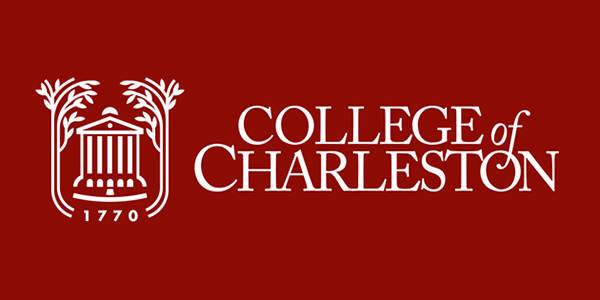
Furman University – Downtown Greenville
- Traveling to Furman University
Greenville:
Located in South Carolina’s Upstate and situated in the foothills of Blue Ridge Mountains, Greenville is nationally recognized as one of the best cities in the United States. It sits between the popular cities of Ashville, North Carolina and Atlanta, Georgia. Greenville is exceptional in its family-friendly attractions and activities, from its Prisma Health Swamp Rabbit Trail and Falls on the Reedy to the Art & Light Gallery and Heritage Green. It has a thriving downtown with art galleries, unique shops and boutiques, museums, and restaurants, just to name a few. Explore Greenville…
- Dining and Food Options
For Greenville, since our primary hotel and the site of our sessions are located in the middle of downtown, we do not have a dining plan suggested, but will provide recommendations for coffee, restaurants, cafes, and fine dining establishments within walking distance of the Aloft hotel.
Coffee Shops:
In addition to the coffee available in the Aloft Hotel, you might wish to explore several of the coffee and breakfast locations in downtown Greenville.
We recommend Methodical Coffee located conveniently in One City Plaza on Main street (across the hall from where our sessions will be held in Furman 101).
The Coffee Underground is a delightfully atmospheric coffee shop option across Main Street from the Aloft Hotel, and a Starbucks can be found in the lobby of the nearby Hyatt Regency Hotel.
Restaurants/Fine Dining Establishments:
The hotel is located in a prime spot in downtown Greenville for great dining options. There are several restaurants within walking distance that will be of interest to you.
One of the most popular fine dining establishments is Up on the Roof , a 5-10 minutes walk from the Hotel. Another wonderful dining location nearby is The Lazy Goat , a 10-minute walk. Limoncello , a 5-10 minute walk from Aloft, is a great dining option. These restaurants are near Falls Park on the Reedy River, which has several eateries and nightlife locations.
- Internet access while at Aloft Hotel (Greenville, SC)
While you are at Aloft Hotel, you will have access to the hotel’s WiFi access (with details provided to you by Aloft staff at check-in).

- Internet access while at Furman 101 and Furman University
While taking part in Institute activities at the Furman 101 site in downtown Greenville, SC, and on campus at Furman University, you will have access to a Furman Visitor Account. A username and password will be provided with check-in materials when you arrive in Greenville.
- Recommended Accommodations
The Aloft Hotel, 5 North Laurens Street, Greenville, SC 29601, (864) 297-6100
Click this link to make a reservation at The Aloft Hotel on or before June 3, 2023 for the group rate of $129 per night.
Start date: Sunday, July 2, 2023
End date: Sunday, July 9, 2023
Optional
Local hotels and Airbnb accommodations.
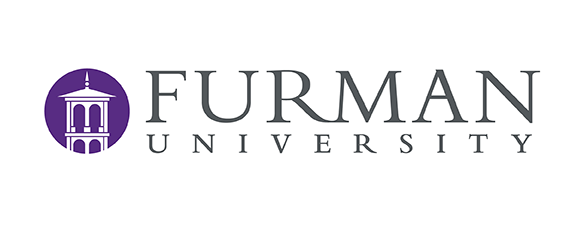
Equal Opportunity Statement
Endowment programs do not discriminate on the basis of race, color, national origin, religion, sexual orientation, disability, or age. For further information, write to the Equal Opportunity Officer, National Endowment for the Humanities, 400 7th Street, SW, Washington, DC 20024. TDD: 202-606-8282 (this is a special telephone device for the Deaf).
Principles of Civility for NEH Professional Development Programs
NEH Seminars, Institutes, and Landmarks programs are intended to extend and deepen knowledge and understanding of the humanities by focusing on significant topics, texts, and issues; contribute to the intellectual vitality and professional development of participants; and foster a community of inquiry that provides models of excellence in scholarship and teaching.
NEH expects that project directors will take responsibility for encouraging an ethos of openness and respect, upholding the basic norms of civil discourse.
Seminar, Institute, and Landmarks presentations and discussions should be:
- firmly grounded in rigorous scholarship, and thoughtful analysis;
- conducted without partisan advocacy;
- respectful of divergent views;
- free of ad hominem commentary; and
- devoid of ethnic, religious, gender, disability, or racial bias.
NEH welcomes comments, concerns, or suggestions on these principles at questions@neh.gov
Policy Statement
Any views, findings, conclusions, or recommendations expressed in this {article, book, exhibition, film, program, database, report, Web resource}, do not necessarily represent those of the National Endowment for the Humanities.
The National Endowment for the Humanities, Clemson University and Furman University together: Democracy demands wisdom.
